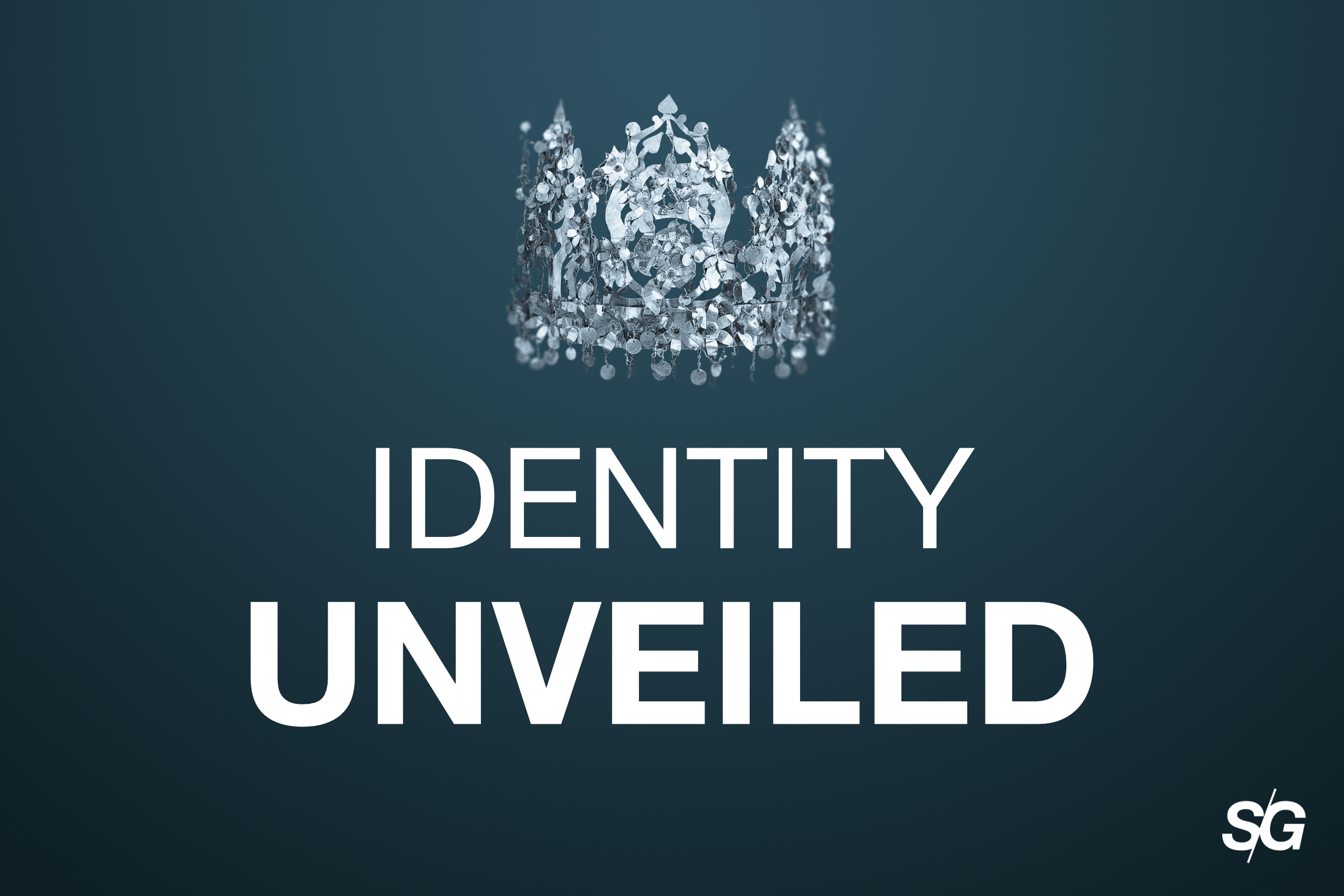Also Available On






ELECT TO CONNECT: COMMUNICATE LIKE ROYALTY
Hello Everyone. This is Shirene Gentry with the Identity Unveiled podcast.
I would like to use this podcast to combine the concept of identity – who you are – and life coaching (tools for communicating better). Of course, your ability to communicate well does not determine your worth and value, but think about this: What kind of influence do you have on the people around you? Do others dread conversation with you because you get defensive, argumentative, or simply ignore their concerns? Do they leave their presence feeling better or worse about themselves?
What makes the difference? Communicating well with the people in your life.
I hope you have had an opportunity to listen to my recent bonus podcast for leaders as to traits we look for. In conjunction with that, a leader must learn to listen to their support team, regardless of the venue! To clarify, the podcast on leadership is about character; this podcast is about communication.
Dr. Caroline Leaf, on Instagram, recently shared a quote: “You can’t change the people around you, but you can change the people who surround you.”
Think about a person or a relationship – personal, professional, secular, and let’s not exclude evangelical – that simply fell apart because the people involved did not have the proper tools for communicating through the conflict. I’m sure you can all think of a personal relationship or a situation where people simply came to an impasse. And what a sad state of affairs it is when people who claim – and even do – have a higher standard of personal value by claiming faith as a core value who destroy relationships by their inability to draw people in or don’t make an attempt to understand others. I have seen a handful of occasions in the last few years, and will go as far as to say this certainly damages credibility, testimony, and level of positive influence.
Before I give simple tools to incorporate into your own way of relating to others, let me first share that people come to any relationship with their particular backstory which involves their ability to communicate well. I will call these the factors that are the backdrop of how someone connects with others.
Backdrop/Backstory
- Emotions: How you relate to people most likely was shaped and formed while in your family of origin.
For me, I learned quickly to either suppress or repress my emotions. Because this was a learned behavior that became a pattern, I carried this into adulthood. Because of this, I was never able to share what bothered me. I kept those troublesome emotions and thoughts inside.
What I’m going to share with you is that you can literally learn these new tools regardless of your age, and that’s the good news!
- Fight/Flight/Freeze: This is a stress response to a perceived threat, which begins in the amygdala part of the brain. Sometimes, this response is overactive and can occur when nonthreatening situations trigger your reaction.
I would like to suggest, that to one degree or another, we can actually use this response in how we respond or react to people.
Have you ever known someone to jump to conclusions and immediately attack in an aggressive way through their words (fight)?
Have you ever known someone to be so overwhelmed at how someone is berating you that you can’t even process it in the moment (freeze) with the inability to respond? This has happened to me.
Have you ever known someone to actually “flee” the conversation by simply denying what you’re trying to discuss and change the subject (flee)?
- Mood and Mindset: Regardless of venue – you “bring” how you’re feeling and what is on your mind to present conversations.
Keep in mind that any particular contributing factor from your past is a starting point, not an excuse! The key is to have knowledge about the past so you can make changes in the present and future!
Life Coaching Questions:
How has your family of origin affected your communication patterns? Perhaps role modeling has strongly influenced on how you connect (or not) with others.
How has an early experience affected your communication patterns?
Due to a family’s interpersonal dynamic, perhaps you have managed to handle your emotions and thoughts in a less than ideal way.
——-
Another concept worth mentioning as you learn to connect better with those around you:
Keep in mind that for yourself and for others, several of our core needs are to be heard, understood, praised (who a person is, not behavior), and affirmed (what a person does).
The Power of Words …and Then Some!
- Words comprise 7% of what is communicated
Think of a time where someone’s words cut to the core. You haven’t forgotten, have you? And to think of the power of words, the next two components speak even louder!
- Body Language comprises 55% of what you communicate
- Tone comprises 38%
Life Coaching Tip and Takeaway:
Since words comprise the very least of what is communicated, make the intentional effort to NOT “discuss” areas of conflict in text or email. You cannot “see” the person with whom you are communicating with, and much can be misunderstood!
Hope in Connecting (H.O.P.E.)
Here is an acrostic I developed which gives improved ways of connecting and attaching with your relationships. Keep in mind that these tips can be used for family members, your children, and your co-workers.
- HALT
a. Do I need to refrain from reacting?
b. Do I need to remove myself from the conversation long enough to take
deep breaths or collect my thoughts?
c. Do I need to stop interrupting when someone else is talking?
d. Actively listen to what someone is saying rather than thinking of my
response while they are talking!
2. OFFER
a. What is the person’s concern rather than jumping to conclusions or
assumptions?
b. Remember that every person has a core need to be heard and
understood.
c. If you are not sure what the person is trying to say or communicate,
do the following:
1. Ask open ended questions (“Can you clarify what you mean?”).
2. If you are trying to understand, repeat or rephrase what you
think they are saying.
3. PRAISE
a. Selectively focus on something positive that they are saying or
something they are doing well.
b. Validate (empathize) their concerns.
Your goal is NOT to necessarily agree with them; it’s to listen to what
they are saying and clarifying such so as for them to be understood.
People can share opposing views, but that’s not the issue at hand.
4. EXAMINE
a. What are the “what ifs” in this situation? Am I jumping to
conclusions?
b. Have I questioned the questions (the “what ifs”)?
Goal for Communicating Well
The goal to communicate well is to be assertive – a positive description – rather than aggressive or passive. Assertive means that you share your thoughts and your feelings by using “I” statements rather than “You” statements. [Ex. “I feel _________ when you _______” instead of, “You never______etc.” “I feel this way because _________.”]
Ponder one of two steps in your own life by reviewing the concepts discussed today and specific ways you can improve.
Remember Dr. Leaf’s comment that I began with: You want to change the people who surround you, and I believe this happens in learning to communicate well!
Also, when you learn to communicate better, your emotional attachment to that person improves dramatically. Why? Because you are sending the message to them that you are a safe, secure, and trustworthy person for them to disclose.
Take one step toward better conversation today. And remember that every road that leads to conflict can be the same pathway that leads to positive change. So thank God for the opportunities He gives you to improve.
Don’t you want to be that kind of person?
Lorem ipsum dolor sit amet, consectetur adipiscing elit. Sed nec pellentesque purus. Nunc finibus urna eget est molestie, non dignissim nulla cursus. Proin hendrerit, lacus vitae imperdiet rhoncus, tortor quam sodales lorem, vitae hendrerit est nulla at dolor. Quisque dictum dui eget turpis dapibus pharetra. Morbi feugiat dolor eu sapien suscipit, ut molestie lorem varius. Pellentesque id justo eu risus dapibus maximus. Pellentesque id egestas ipsum. Vivamus nec neque ac tellus ultricies dapibus vitae in sapien.
Lorem ipsum dolor sit amet, consectetur adipiscing elit. Sed sed sapien erat. Vivamus lacus arcu, luctus eget pulvinar eget, dignissim et justo. Vivamus rhoncus nunc ut dolor malesuada ornare. Cras faucibus augue venenatis viverra commodo. Orci varius natoque penatibus et magnis dis parturient montes, nascetur ridiculus mus. Quisque malesuada consequat dolor non auctor.
About The Author

Shirene Gentry
Shirene is a Board Certified Master Christian Life Coach through the American Association of Christian Counselors and has professional memberships with the AACC and the International Christian Coaching Association.
